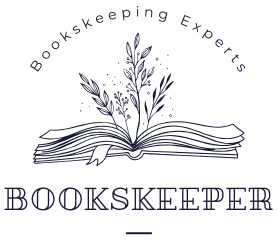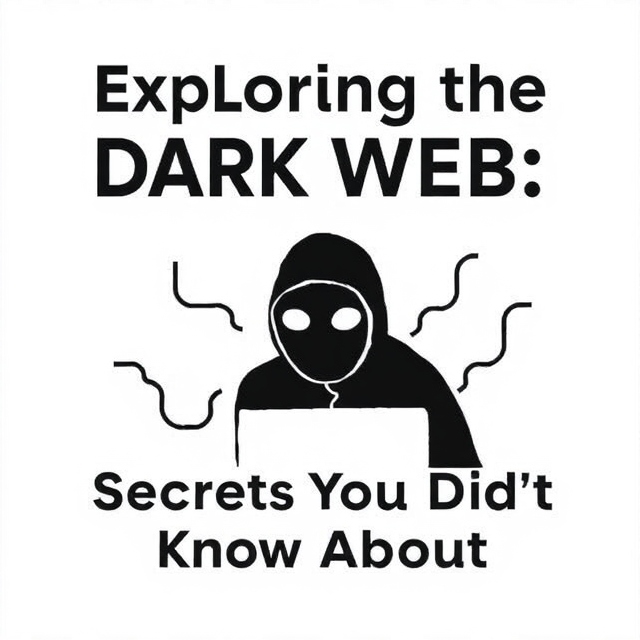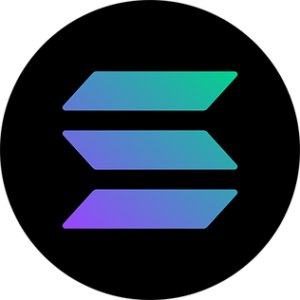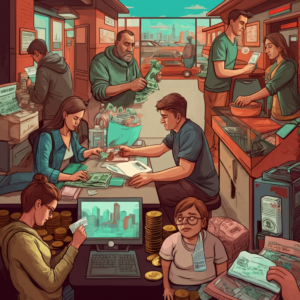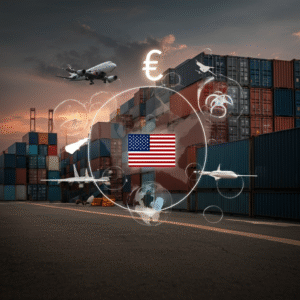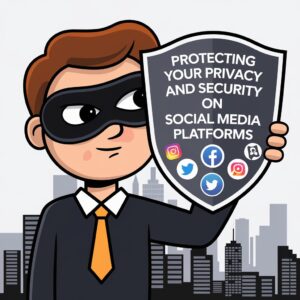The Dark Web is a hidden part of the internet that is not indexed by traditional search engines like Google. It exists beneath the Surface Web, which is the part of the internet that we use daily.
The Dark Web is made up of websites that require special software, such as Tor, to access. It’s known for providing anonymity to users, allowing them to browse and communicate without being easily tracked. While some use it for privacy and freedom of expression, it also hosts illegal activities like black markets, hacking services, and cybercrime.
Understanding the Dark Web: A Quick Introduction
The Dark Web is intentionally hidden to provide a level of privacy and anonymity. It uses encrypted networks to obscure the identities of users, making it difficult to track their online activities. This is why some people turn to the Dark Web for secure communication, to access uncensored information, or to protect their privacy in countries with strict internet surveillance.
However, it’s important to note that the Dark Web is not entirely a safe space. While some use it for good, many criminal activities also occur here, such as illegal trade and cybercrime.
Dark Web vs. Surface Web: Key Differences Explained
The Surface Web is the part of the internet that is easily accessible and indexed by search engines. You can use it without any special tools, like Google or Bing, to find websites. Most of the websites we visit every day, such as social media platforms, news sites, and e-commerce stores, are part of the Surface Web.
The Dark Web, on the other hand, is intentionally hidden. To access it, you need special software, like the Tor browser, that masks your location and identity. Unlike the Surface Web, the Dark Web is not indexed by search engines, and the websites here use a .onion extension instead of the usual .com or .org.
In summary, the key differences are:
- Surface Web: Accessible through regular browsers and search engines.
- Dark Web: Requires special software to access, offers anonymity, and hosts a mix of legal and illegal activities.
How Does the Dark Web Work?
The Dark Web is a hidden part of the internet that requires special software to access. It works through networks like Tor, which ensures that users remain anonymous by encrypting their traffic. Unlike regular websites, Dark Web sites have a unique .onion extension and are not indexed by search engines. To access these sites, you need to use the Tor browser, which routes your internet traffic through multiple layers, making it nearly impossible to trace.
The Role of Tor Browser in the Dark Web
The Tor browser is essential for accessing the Dark Web. It allows users to connect to the Tor network, which hides your location and protects your identity. Tor works by bouncing your internet traffic through different nodes around the world, encrypting the data at each step. This makes it very difficult for anyone, including hackers or authorities, to monitor your activities or track your IP address. The Tor browser helps users access .onion websites securely and anonymously.
How to Access the Dark Web Safely
To browse the Dark Web safely, follow these steps:
- Download Tor Browser: Install the official Tor browser to access Dark Web sites. It’s free and designed for secure browsing.
- Use a VPN: To further enhance your privacy, use a VPN (Virtual Private Network). This hides your real IP address and adds an extra layer of encryption to your connection.
- Browse .onion sites: After setting up Tor and VPN, you can access .onion websites. Stick to trusted sites to avoid scams and illegal activities.
- Avoid downloading files: Don’t download files from unknown or suspicious sources, as they could be harmful or contain malware.
- Stay anonymous: Never share personal information, such as your real name or address, when browsing the Dark Web.
By following these safety measures, you can explore the Dark Web while keeping your identity and activities secure. Always be cautious, as the Dark Web also contains illegal content that could put you at risk.
Who Uses the Dark Web?
The Dark Web is used by different types of people for various reasons. Some use it for privacy and freedom, while others are involved in illegal activities. Here are the two main groups that use the Dark Web:
Privacy Seekers: Why They Choose the Dark Web
Many people use the Dark Web to stay private and protect their information. In today’s world, where everything we do online can be tracked, the Dark Web offers a way to stay anonymous. People who need privacy, like:
- Journalists: Reporters in countries with strict rules use the Dark Web to talk safely without the risk of being caught.
- Activists: People fighting for freedom or change in controlled countries use the Dark Web to avoid being watched by the government.
- Whistleblowers: Those who want to share secret information without revealing their identity also use the Dark Web for safety.
For these people, the Dark Web is a place where they can speak freely and protect their privacy.
Cybercriminals and Hackers on the Dark Web
The Dark Web is also used by criminals and hackers. They take advantage of its privacy to do illegal things, like:
- Selling illegal items: Some websites on the Dark Web sell drugs, weapons, or stolen goods.
- Hacking tools: Hackers use the Dark Web to sell tools that can break into computers or steal data.
- Stolen personal data: Criminals often sell stolen information, such as credit card numbers or personal details, on the Dark Web.
While some people use the Dark Web for privacy, it’s also a place where illegal activities happen. Law enforcement tries to stop these crimes, but the Dark Web makes it hard to catch the criminals.
What Happens on the Dark Web?
The Dark Web is a place where both legal and illegal activities happen. While some people use it for privacy and security, others engage in activities that break the law. Here’s an overview of what goes on in this hidden part of the internet.
Legal Activities: How Journalists Use the Dark Web
Many journalists use the Dark Web to safely communicate and protect their sources. In some countries, governments track online activity and censor news. Journalists use the Dark Web to:
- Share information safely: By using tools like the Tor browser, journalists can communicate with sources without being monitored.
- Investigate sensitive topics: Journalists can access information that is censored or restricted in their country.
- Protect their identity: For their own safety, reporters can remain anonymous while conducting investigations or publishing news stories.
The Dark Web gives journalists a secure environment to do their work without fear of being watched or tracked.
Illegal Activities: Dark Web Markets and Drugs
Unfortunately, the Dark Web is also known for illegal activities. Many people use it to buy and sell things that are against the law. Some of the most common illegal activities include:
- Dark Web Markets: These are hidden websites where people can buy illegal products, such as drugs, stolen data, weapons, and fake documents. These markets operate anonymously and usually require cryptocurrency for payments.
- Drugs and Weapons: The Dark Web has many illegal drug markets where people can buy various drugs. It’s also a place where weapons are sold illegally.
While some people use the Dark Web for positive reasons, it’s also a place where dangerous and illegal things happen. Authorities are constantly working to shut down these illegal activities, but it’s still a major issue on the Dark Web.
The Dangers of the Dark Web
The Dark Web may offer privacy and anonymity, but it also comes with significant dangers. Because of its hidden nature, the Dark Web is a place where illegal activities and cyber threats thrive. Here’s an overview of the dangers you could face on the Dark Web.
Malware and Hacking Risks on the Dark Web
The Dark Web is filled with malicious content. Many websites on the Dark Web are designed to infect your computer with malware or steal your personal information. These include:
- Malicious downloads: Some websites offer free tools or software, but they may contain viruses or malware that can harm your computer and steal your data.
- Hacking tools: There are hackers on the Dark Web who sell software that can be used to break into computers, steal accounts, or launch cyberattacks.
- Data breaches: Hackers can sell stolen data, like credit card details or login credentials, on the Dark Web, which can lead to financial losses or identity theft.
Accessing the Dark Web without proper security measures can expose you to these types of cyber threats.
Scams, Fraud, and Online Threats
The Dark Web is also full of scams and fraudulent activities. Some common dangers include:
- Fake markets and products: Many Dark Web marketplaces sell illegal goods or services that never arrive. You might pay for something, but the product never gets delivered.
- Phishing attacks: Scammers may try to trick you into giving up personal information, such as passwords or credit card numbers, by pretending to be legitimate services.
- Extortion and blackmail: Some criminals use the Dark Web to extort money by threatening to release personal information or harm you unless you pay.
These risks make the Dark Web a dangerous place, especially if you’re not cautious. Always use strong security tools and avoid engaging with suspicious websites or individuals.
How to Stay Safe on the Dark Web
While the Dark Web offers privacy, it also presents many dangers. To protect yourself while browsing, it’s important to follow best practices and use the right tools. Here’s how you can stay safe on the Dark Web.
Best Practices for Protecting Your Privacy
To ensure your privacy and security, keep these best practices in mind:
- Avoid sharing personal information: Never use your real name, email, or any identifying details when browsing the Dark Web. Use aliases or fake information to remain anonymous.
- Stick to trusted websites: Not all websites on the Dark Web are trustworthy. Avoid shady or suspicious websites that could be scams or carry harmful content.
- Don’t download files: Files from the Dark Web can contain malware or viruses. Only download files from trusted sources if necessary, and always scan them for threats.
- Be cautious with payments: If you’re buying something, use anonymous payment methods like cryptocurrency. Never share your credit card or bank details.
By following these guidelines, you can minimize the risks and protect your privacy on the Dark Web.
Using VPNs and Secure Browsers for Safe Browsing
To stay secure while exploring the Dark Web, use these essential tools:
- VPN (Virtual Private Network): A VPN adds an extra layer of security by encrypting your internet connection and hiding your real IP address. It also helps protect you from hackers or other malicious actors trying to track your activities.
- Tor Browser: The Tor browser is essential for accessing the Dark Web safely. It routes your traffic through multiple layers of encryption, making it difficult to trace your online activities. Always download Tor from the official website to avoid fake versions that may contain malware.
By using a VPN along with Tor, you can ensure that your browsing remains anonymous and secure, reducing the risk of being tracked or hacked. Always make sure your tools are up to date to stay protected from the latest threats.
How to Avoid Scams and Fraud on the Dark Web
The Dark Web is full of scams and fraudulent activities, so it’s essential to stay vigilant while browsing. Here’s how you can avoid falling for scams and ensure a safer experience.
Recognizing Red Flags of Dark Web Scams
To avoid getting scammed, watch out for these common red flags:
- Unrealistic offers: If something seems too good to be true, it probably is. Extremely cheap products or services are often a scam designed to steal your money or personal information.
- Lack of contact information: Legitimate websites usually have a way to contact customer support. If a site offers no way to reach them or seems unprofessional, it’s a warning sign.
- Unclear or fake reviews: Many Dark Web marketplaces use fake or manipulated reviews to convince you that a seller is trustworthy. Be cautious and avoid purchasing from unverified sources.
- Pressure to buy immediately: Scammers often try to rush you into a decision, saying that the offer is limited or time-sensitive. Take your time to evaluate the situation before making any transactions.
If you encounter any of these red flags, it’s best to leave the website and look for safer options.
Tips for Safely Navigating the Dark Web
Follow these tips to navigate the Dark Web more securely and avoid scams:
- Use trusted websites: Stick to well-known, reliable websites that have good reputations. Avoid random or newly created sites, as they may be scams.
- Verify product legitimacy: Always double-check any product or service you’re thinking of buying. Look for reviews from multiple sources and verify the legitimacy of sellers before making any purchases.
- Avoid sharing personal details: Never give out sensitive information, such as your real name, email, or financial details, unless you’re sure the site is legitimate.
- Use secure payment methods: Use anonymous payment methods, like cryptocurrency, instead of traditional payment options like credit cards or bank transfers to protect your financial details.
- Be cautious with links: Don’t click on random links or pop-up ads that appear on Dark Web sites, as they may lead to malicious pages designed to steal your data or infect your device with malware.
By following these guidelines, you can protect yourself from scams and fraud while navigating the Dark Web safely. Always prioritize your security and anonymity.
What Law Enforcement is Doing About the Dark Web
The Dark Web is often associated with illegal activities, which has prompted law enforcement agencies worldwide to take action. Authorities are increasingly focused on monitoring and cracking down on crimes that occur in this hidden part of the internet.
How Authorities Are Cracking Down on Dark Web Crimes
Law enforcement agencies are using advanced techniques to track and disrupt illegal activities on the Dark Web:
- Monitoring Dark Web markets: Authorities are continuously monitoring Dark Web markets where illegal goods like drugs, weapons, and stolen data are bought and sold. They use special tools and undercover operations to infiltrate these markets and gather evidence.
- Tracking cryptocurrency transactions: Since many transactions on the Dark Web are made using cryptocurrency, law enforcement agencies are working on tracking and tracing these transactions to identify criminals. Agencies have developed technology to track even anonymous digital currencies like Bitcoin.
- Collaboration between agencies: Law enforcement agencies around the world, such as the FBI, Europol, and other regional authorities, often collaborate to investigate and dismantle Dark Web crime networks. Joint operations help them take down major criminal organizations operating on the Dark Web.
By using these methods, authorities are making significant progress in disrupting illegal activities and bringing criminals to justice.
High-Profile Dark Web Busts and Arrests
There have been several high-profile busts and arrests that highlight the efforts of law enforcement in tackling Dark Web crime:
- Silk Road: One of the most famous cases was the takedown of Silk Road, an illegal marketplace where users could buy and sell drugs, fake IDs, and other illicit items. In 2013, the FBI shut down Silk Road and arrested its founder, Ross Ulbricht. Ulbricht was later sentenced to life in prison.
- AlphaBay and Hansa Market: In 2017, law enforcement agencies took down two major Dark Web marketplaces, AlphaBay and Hansa Market, which were used to sell illegal goods. The operation involved authorities seizing the websites and gathering information on thousands of criminal transactions. Many arrests followed, and the takedowns were a huge victory for law enforcement.
- Operation Disruptor: In 2020, authorities from the U.S., Europe, and other regions launched Operation Disruptor, which targeted illegal drug trafficking on the Dark Web. The operation led to the arrest of hundreds of individuals involved in the sale and distribution of drugs and other illegal items.
These successful operations show that while the Dark Web remains a significant challenge, law enforcement agencies are becoming more effective at identifying and taking down criminal activities.
The Future of the Dark Web: What’s Next?
As we move further into the digital age, the Dark Web continues to evolve. It remains a space of both innovation and danger, with many wondering what its future will look like. Here’s what experts predict for the Dark Web in the coming years.
Predictions for the Dark Web in 2025 and Beyond
Experts predict that the Dark Web will continue to grow and change in the coming years, especially as technology advances. Some key predictions include:
- Increased privacy tools: As governments and corporations continue to monitor online activity, more people may turn to the Dark Web to safeguard their privacy. This will likely lead to the creation of more sophisticated privacy tools, making it easier for users to remain anonymous.
- Greater use of cryptocurrencies: As digital currencies like Bitcoin and Ethereum become more mainstream, their use on the Dark Web is likely to grow. These cryptocurrencies offer users an extra layer of anonymity, and they’re ideal for illegal transactions.
- More decentralized networks: The rise of decentralized technologies, such as blockchain, could lead to a more resilient Dark Web. These technologies would make it harder for authorities to shut down Dark Web sites and track users.
- Increasing regulation: Governments are likely to implement stricter regulations and develop better techniques to monitor and control the Dark Web. While this may help reduce illegal activities, it could also make the Dark Web more difficult to access for those who need privacy.
Will the Dark Web Get More Dangerous or More Secure?
The future of the Dark Web could go in two directions:
- More dangerous: As criminals and hackers continue to evolve their tactics, the Dark Web may become even more dangerous. With advancements in cybercrime, there could be more sophisticated scams, malware, and illegal markets. As anonymity increases, it could encourage more people to engage in harmful or illegal activities.
- More secure: On the other hand, as privacy tools and encryption become stronger, the Dark Web could become more secure for legitimate users. The rise of blockchain and other technologies could provide more ways to protect personal information and transactions.
Ultimately, the future of the Dark Web depends on how authorities, tech companies, and users themselves handle its growth. While it’s hard to predict exactly what will happen, it’s clear that the Dark Web will continue to be a significant part of the internet’s hidden world.
Conclusion: Should You Explore the Dark Web?
Exploring the Dark Web can be both fascinating and dangerous. While it offers privacy and a place for people to access uncensored information, it’s also home to illegal activities and cyber threats. Before deciding to explore, it’s essential to consider the risks and take the necessary precautions.
Final Thoughts on Exploring the Dark Web Safely
If you’re curious about the Dark Web, it’s important to approach it with caution. Use the right tools, like VPNs and Tor, to maintain your privacy and security. Always avoid engaging in illegal activities or interacting with suspicious websites. Remember that while there are legitimate uses for the Dark Web, like privacy for journalists or activists, there are also plenty of risks, including scams, hacking, and malware.
Is It Worth the Risk in 2025?
Whether the Dark Web is worth exploring in 2025 depends on your reasons for visiting. If you’re seeking privacy, freedom of speech, or accessing uncensored information in restrictive countries, the Dark Web can be an invaluable tool. However, for most people, the risks—from cyber threats to illegal content—outweigh the benefits.
In conclusion, if you decide to explore the Dark Web, make sure to prioritize your safety and stick to legal activities. Use appropriate tools and stay informed about the dangers to reduce the risk of encountering harm.
FAQs
1. What is the Dark Web?
The Dark Web is a hidden part of the internet that is not indexed by search engines. It requires special tools, like the Tor browser, to access. While it provides privacy, it is also known for illegal activities.
2. Is it illegal to access the Dark Web?
No, accessing the Dark Web is not illegal in itself. However, engaging in illegal activities on the Dark Web, such as buying or selling illicit goods, is against the law.
3. How do I stay safe on the Dark Web?
To stay safe, always use a VPN, access the Dark Web through the Tor browser, avoid sharing personal information, and stay away from suspicious websites. It’s also important to use cryptocurrency for anonymous transactions.
4. Can I find illegal things on the Dark Web?
Yes, the Dark Web is known for hosting illegal markets where users can buy and sell drugs, weapons, and stolen data. However, not all content is illegal, as some people use it for privacy or to share uncensored information.
5. Why do people use the Dark Web?
People use the Dark Web for various reasons, including privacy, freedom of speech, bypassing censorship, and accessing information that may be restricted or illegal in their country. Some also use it to avoid government surveillance.
